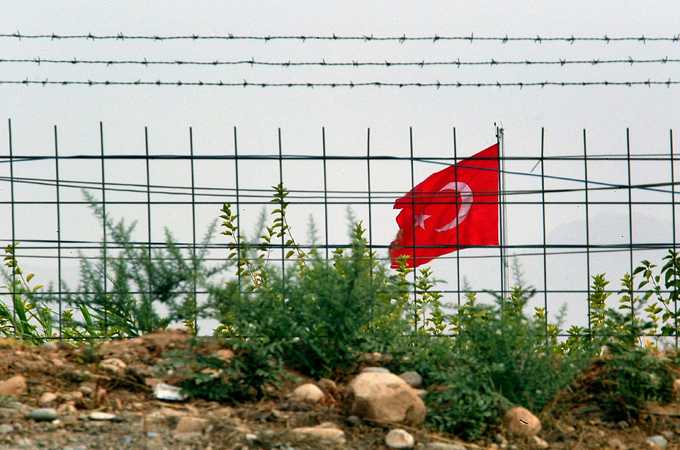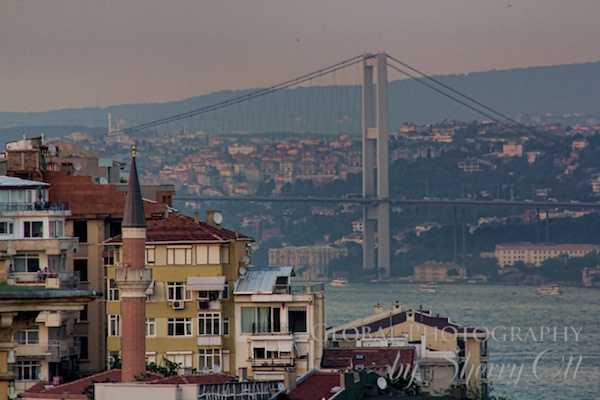Nicholas Birch 7/02/09
Turkey and the International Monetary Fund will be making a final push in the coming weeks to see whether they can conclude a loan agreement, according to Prime Minister Recep Tayyip Erdogan. Turkish analysts say the Turkish-IMF wrangling is masking a more important question: is Ankara committed to sustaining fiscally prudent policies that have made it an attractive foreign investment destination during this decade?
“Turkey may be able to roll over debt this year, but that is not the issue”, says Elif Bilgi, managing director of EFG Securities, an Istanbul brokerage. “The issue is whether Turkey is going to continue with fiscal prudence.”
After decades of boom-and-bust cycles that culminated in a banking crisis in 2001, Turkey pulled itself together under the current Justice and Development Party (AKP) government, pushing through a program of reforms and privatization that brought in up to $20 billion in foreign direct investment annually.
This year, though, huge increases in spending on municipalities and health have dug a deep budgetary hole. Turkey’s deficit rose 268 percent during the first four months of this year to TL 20.1billion ($12.8 billion) and is expected to reach 7 percent of GDP by the end of 2009.
Turkey’s leaders say the results reflect its efforts to stimulate a slowing economy, and insist there is no need for concern. With counter-cyclical fiscal easing going on all over the globe these days, they have a fair point.
After six years in which it maintained impressive budget surpluses, Turkey does have a little money to spend during these rainy days. Meanwhile, increasing pressure on state finances looks likely to be offset by a current account deficit that is expected to plummet from $42 billion last year to $10 billion in 2009, due mainly to lower petrol prices and falling imports.
But Ankara’s argument is also a touch disingenuous. For a start, Turkey began loosening fiscal policies during the run up to general elections in 2007 — well before the start of the global financial crisis. More importantly, analysts say, the budget deficit today is as much the result of Turkey’s reluctance to tackle crucial structural reforms, as it is of recent efforts to stimulate a domestic economy in crisis.
“The whole Turkish fiscal adjustment story was good, but over-rated: a lot of tweaking of indirect taxes — on alcohol, for instance — and little effort to attack structural weakness in the budgetary system”, says Murat Ucer, Istanbul-based economist for the New York economic intelligence company GlobalSource.
The shortcomings of Turkey’s budget system are legion. According to a May 2009 report by the Britain-based International Budget Partnership, Turkey trails far behind its developing peers in Eastern Europe and South America in terms of budget transparency. And recent changes to regulations on municipal spending have reduced central government oversight even further, says Guven Sak, head of the Economic Policy Research Foundation of Turkey, an Ankara-based think-tank.
But the key problem is a tax system that is heavily dependent on indirect levies, such as sales tax. That leaves the country’s finances extremely vulnerable to economic downturns.
IMF officials overseeing the $10 billion stand-by arrangement Turkey completed in 2008 have talked constantly about the need to contain a shadow economy that analysts believe to amount to a third of Turkish GDP. On May 20, Treasury Minister Mehmet Simsek highlighted the urgent need to “up the fight against the unrecorded economy” and “collect income tax” from a broader base.
Putting words into action now looks set to be tough, though. The IMF expects Turkey’s GDP to shrink by 5.1 percent in 2009, hardly an ideal environment in which to promote zealous tax inspection.
For Guven Sak, this is where a new IMF loan could play a useful role. “IMF funds could reduce treasury reliance on banks for loans, freeing banks up to finance companies hit by more efficient taxation,” he argues.
The Turkish-IMF negotiations have proven mildly acrimonious so far. On June 26, Erdogan complained that the IMF has brought up political issues during loan negotiations. “When the IMF goes into political matters, it is not acceptable to us,” Erdogan said during a visit to Brussels.
There is a political reason for the Turkish leader’s apparent unwillingness to tackle budget and tax reform: general elections in 2011. His party cruised to victory in 2007’s general elections, gaining 47 percent of the vote. But since then, the AKP has seen its political fortunes plummet. Erdogan was clearly stunned when the party garnered only a 39 percent share in local elections this March. “The 2011 polls will define all of Erdogan’s actions from now on”, says Murat Yetkin, Ankara bureau chief for the liberal secular daily Radikal. “If he thinks [a new policy] will cost him votes, he will take all risks and not sign along the dotted line.”
Upping the efficiency of income and corporate tax collection never was a vote-winner. What makes the issue especially sensitive for Erdogan is that tax evasion is widespread among small and medium enterprises and Anatolian businessmen that form a key portion of the AKP’s base of support.
Few analysts foresee Turkey facing major economic problems in the short-term, with or without a new IMF deal. For Murat Ucer, though, the government’s ongoing failure to agree on the need for a fiscal rule bodes ill for the middle-term. “Turkey is losing sustainability of public finances”, he said. “For the past three years, we have been at a crossroads: are we going to tackle structural reforms? Or are we going to basically risk going back to the 1990s, with unsustainable debt and high inflation? We haven’t started that game yet, but the trend is in that direction.”
Editor’s Note: Nicolas Birch specializes in Turkey, Iran and the Middle East.







